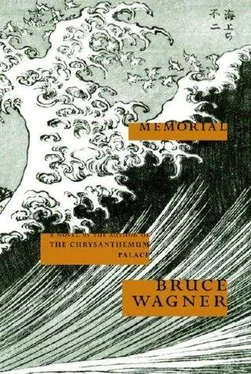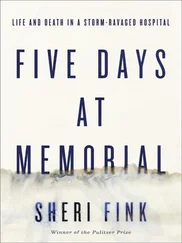Chess began to have warm feelings about Marj but couldn’t separate them from the fantasy of unsolicited largesse. He imagined her giving 10 times what he planned to ask for, the act of spontaneous generosity opening a new era of intimacy between mother and son. There was no reason to feel guilt; he wasn’t going to leave her hurting. It was the opposite. He would give her the collateral of his heart, knowing it would make her feel better to help her son. Chess knew she’d been left cash and property, and had jewelry as well — old-style brooches and pins, earrings, whatever. She had to be sitting pretty. Hamilton was an ace provider. He didn’t know if the house was paid off. Wasn’t his place to ask. He wondered, fleetingly, if you could find out that sort of thing online.
About a mile from Chameau, he began to parse in his head the “My Favorite Weekend” questionnaire the chick had faxed over, thinking he’d use tonight as a typical evening out with friends at an exotic local fave. (He’d have to “take its pulse”; sometimes these boîtes died a sudden death.) He needed to come up with something special for Sunday brunch; Sunday brunch was the “My Favorite Weekend” cum shot. He never went out for breakfast but it’d be nice to say he was a regular at JAR’s or Casa del Mar (Inn of the Seventh Ray, Father’s Office, City Bakery, and the chink places in Monrovia were played out — MFW had already covered them) and that before brunch it was a “ritual” to take his girlfriend — he was definitely going to have a fictional girlfriend — to the Echo Park/Palisades/Hermosa Beach farmers’ market for fresh flowers, dried fruit, star anise, whatever. That kind of gay horseshit. Maybe throw in poor old Trader Vic’s before they tore it down. But since he was a location scout — that was the angle — they’d probably want him in diverse parts of the city instead of the usual Santa Monica, Malibu, or East Side haunts. He could go to Memphis (Jane’s Room), or Ford’s Filling Station, or ’Sup Nigga, or the hungry cat, or the Bucket (Eagle Rock hamburger joint), or some Jap joint (for yoshoku). Fine and dandy. It’d probably be better if he went to a chocolatier in Altadena or the coffeeshop at the Long Beach airport or maybe bought his fake old lady a customized scent at that place on Abbott Kinney. Then he thought he should do his homework because he might have read about the perfume place in a “My Favorite Weekend.” (Got the idea, subliminally.) Maybe it wasn’t even there anymore. He could probably go online and find out which My Favorite Weekenders frequented wherever. He didn’t necessarily want to bother the chick about it but could feel her out when they had their follow-up phone interview.
THE Super Lotto was now at $78,000,000.
She went to Riki’s, on Robertson. It used to be called “You Are My King Liquors,” but when the owners sold, Riki not very effectively covered the sign with his name. He was always promising customers that one day when he had the time, he would “do it right.”
When she bought her tickets, Marj always wore the lucky lapel pins Ham had given her on their 20th: malachite peas in gold pods and a green jeweled parrot with blue enameled feathers dropping down. They were designed by Jean Schlumberger in the 50s and sold at Tiffany’s. Ham got them at auction. (Her husband had a wonderful eye. One year, he surprised her with a vintage sapphire bracelet by Seaman Schepps. He collected vintage pictures of society ladies in Charles James and Madame Grès that he hung in the apparel offices downtown.) She filled out the lottery form as usual, picking her children’s birthdates and Hamilton’s too. She used to spend $3 but since Ham’s death, she was spending 5.
Riki was from Bombay — she could never help but think of “Rikki-Tikki-Tavi,” the Kipling story Father read to her at bedtime. He didn’t speak much but boy, could he smile, greeting each customer as if they were an old friend (many were). Riki had a son in high school who occasionally helped out. The young man had the same kind, winning disposition, and perfect manners, to boot. Marjorie often felt she should engage them in conversation — afterall, she’d been to Bombay as a girl, for almost a month with her own dad — but the words never came. That was all right; it was enough to feel their warm familiarity. Just being in the shop made her feel like a culture buff, a woman of the world. Besides, she didn’t remember much about the city, mostly recalling the grand hotel they had stayed in, the Taj Mahal Palace — to make any further claims would have been a shallow and possibly embarrassing assertion. It would have devastated her to be thought of as “the ugly American.” (Not that they had those sorts of judgments in them, though one never knew.) One thing she did ask was if a person was supposed to say “Bombay” or “Mumbai.” The city names had changed, which seemed to happen periodically, all over the world. The son unleashed that winning transgenerational smile and said, “Bombay. If you are the cool people, you call it Bombay.”
AS Marj rounded the corner toward home, she saw Cora watering the lawn and the neighbor waved her over for a coffee. Cora said her son Stein bought her a machine that made “perfect cappuccinos.” She stage-whispered that it cost $3,000 and Marj literally gasped when she heard the figure.
One of the pipes did the foam part and the old woman let Cora enjoy herself. Cora loved talking about money. She knew Hamilton had left Marj “comfortable” and was always fishing for a number. Marj knew Stein was richer than Croesus and showered his mother with gifts the way wealthy children do to substitute for quality time. Then she chastised herself, remembering she had neither gifts nor visits from those she had brought into the world. She treasured her daughter’s drop-ins, few and far between as they were; at least Joan was honest, and didn’t try to buy her off. Joan had a life. She’d have hated if her daughter sent costly care packages as a charade. Marj’s lips pursed again in quiet reprimand, cringing at her judgments. Pahrump, the King Charles, limped into the kitchen, and Cora scooped him up in her arms. Pahrump cried out.
“Why is he limping?”
“They think it’s something degenerative — don’t they, Pahrump?”
She planted kisses on the foppish dog’s snout.
“Poor, poor thing.”
“Well,” said Cora, fussing over him. “Not too poor. You have a 3,000 dollar cappuccino machine, don’t you, sweetheart? That’s a limited edition, did you know that, Rump? You can make Mama a cappuccino, can’t you. We can teach you how to make Mama a cappuccino, wouldn’t that be fun?”
Cora asked if she’d thought about traveling.
The old woman blinked and said, “Yes.” She hadn’t planned on confiding to anyone just yet but it seemed as if Cora had been doing a little mind reading.
“We should take a cruise, Marjorie — once Pahrump gets a teeny bit better. 2 lonely gals. We could get lucky!”
They laughed. Cora pursued the topic and Marj realized she was serious. The neighbor began talking about cruises to Mexico or the Caribbean. She’d read an article. Men were employed by ships to dance with the widows — that was a comfort because Cora said she didn’t like the idea of being a wallflower.
“If youz gwannah pays your moneh,” said Cora, in a creaky imitation of Marj knew not what, “youz gottuh gets yo moneh’s worth.”
Marj surprised herself by suddenly saying, “I’ve been thinking of going to India.”
“India! But why?”
“I was there as a girl.”
“But it’s so dirty!”
Читать дальше












